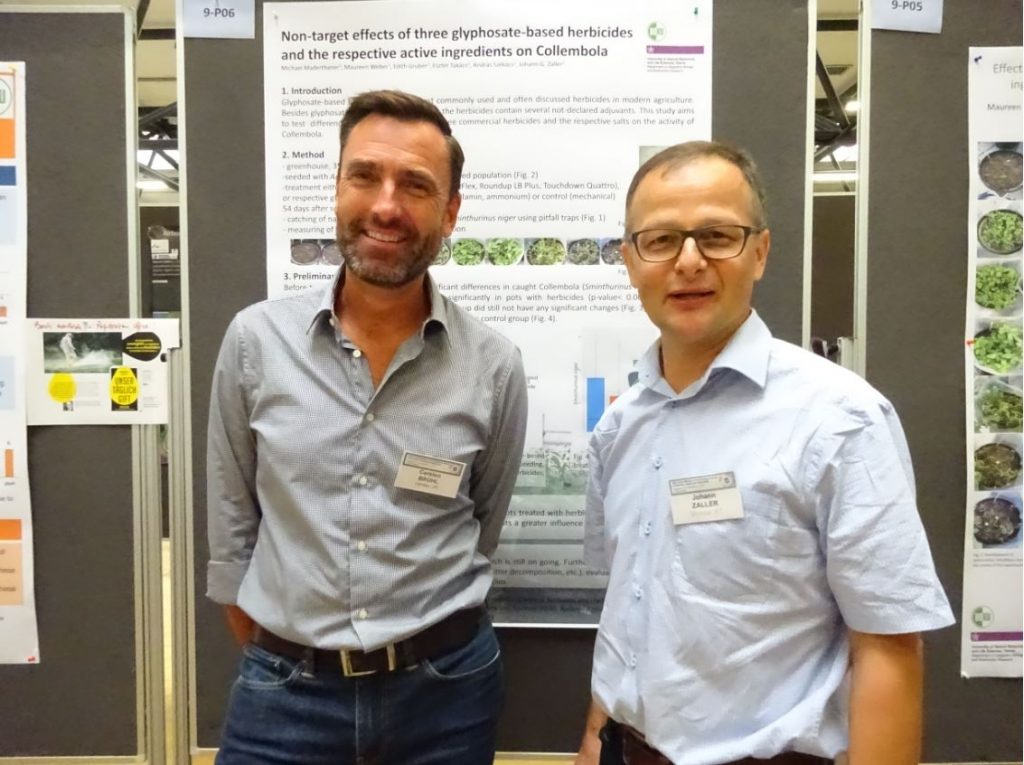In this post, Carsten Brühl discusses their recently published paper “Biodiversity decline as an inappropriate environmental risk assessment of pesticides”.
Pesticides used in agriculture are not as safe as they are often claimed. They are therefore also responsible for the decline of insects and birds in the agricultural landscape. Despite the enormous effort involved in testing the environmental impact of pesticides for authorization, agricultural practice is not taken into account.

The decline in biodiversity in the agricultural landscape is obvious and has gained political attention. For example, the German government recently adopted an insect conservation program and, in the state of Bavaria, following a popular referendum, environmental laws are tightened. The involvement of pesticides in the observed biodiversity declines is also addressed in referendums in Baden-Württemberg and Switzerland, which call for substantial reductions of pesticide use up to total abandonment. These developments are currently leading to farmers’ protests across Germany.
But how can it be that the most heavily regulated group of chemicals, whose environmental impacts are evaluated in very complex procedures, can have such a negative impact? After all, millions of Euros are spent on ecotoxicological studies carried out for pesticide authorization and many authorities in Europe are charged with their assessment.
We postulate that environmental risk assessment (ERA) in the context of pesticide approval is inadequate despite the enormous effort because it does not take into account agricultural practices. We identify three fundamental mistakes:
- ERA ignores the fact that several pesticides are used in the fields at the same time
- There are ecological interactions between organisms that are disturbed by pesticides
- Biodiversity is reduced in the fields themselves, which is not assessed in ERA
In the current debate on the role of pesticides in biodiversity decline, it is important to recognize this. The ERA system is not designed to protect biodiversity and further refinements of the approval process will not change this because these errors are affecting the structural core. Currently, agriculture is blamed for the decline in biodiversity, although only certified, “safe” pesticides are used there. The anger of the farmers is understandable, because they were advised by various agencies for decades to use pesticides in their production process. Now they are being blamed for because many international studies have identified exactly these pesticides as a causal factors of the biodiversity crisis.
Changing the regulatory system at European level requires many resources and is time-consuming. But we do not have this time anymore in view of the biodiversity crisis. We therefore recommend a drastic reduction in pesticide use, a return to the very core of integrated pest management, an increase in semi-natural habitat such as hedgerows and field margins in the landscape and a further expansion of organic farming.
It was essential for us to publish our thoughts now, where the new agricultural policy in the EU is being discussed. It is crucial to realize that the sustained high use of pesticides will only intensify the biodiversity loss in agricultural landscapes. A reversal of the trend will become more and more difficult for future generations at a later date.
The article was authored by Carsten Brühl and Johann Zaller, and published open access in Frontiers in Environmental Science.
The related press release in German can be found here.
